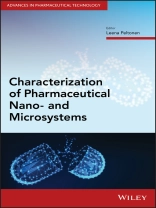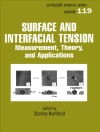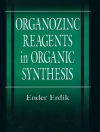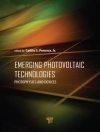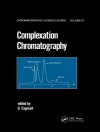Learn about the analytical tools used to characterize particulate drug delivery systems with this comprehensive overview
Edited by a leading expert in the field, Characterization of Pharmaceutical Nano- and Microsystems provides a complete description of the analytical techniques used to characterize particulate drug systems on the micro- and nanoscale.
The book offers readers a full understanding of the basic physicochemical characteristics, material properties and differences between micro- and nanosystems. It explains how and why greater experience and more reliable measurement techniques are required as particle size shrinks, and the measured phenomena grow weaker.
Characterization of Pharmaceutical Nano- and Microsystems deals with a wide variety of topics relevant to chemical and solid-state analysis of drug delivery systems, including drug release, permeation, cell interaction, and safety. It is a complete resource for those interested in the development and manufacture of new medicines, the drug development process, and the translation of those drugs into life-enriching and lifesaving medicines.
Characterization of Pharmaceutical Nano- and Microsystems covers all of the following topics:
* An introduction to the analytical tools applied to determine particle size, morphology, and shape
* Common chemical approaches to drug system characterization
* A description of solid-state characterization of drug systems
* Drug release and permeation studies
* Toxicity and safety issues
* The interaction of drug particles with cells
Perfect for pharmaceutical chemists and engineers, as well as all other industry professionals and researchers who deal with drug delivery systems on a regular basis, Characterization of Pharmaceutical Nano- and Microsystems also belongs on bookshelves of interested students and faculty who interact with this topic.
สารบัญ
1. Selecting a Particle Sizer for the Pharmaceutical Industry
Professor Maria Margarida Figuiredo ([email protected])
2. Spectroscopic methods in solid-state characterization
Professor Clare Strachan ([email protected])
3. Microfluidic analysis techniques for safety assessment of pharmaceutical nano- and microsystems
Dr Tiina Sikanen([email protected])
4. In Vitro In Vivo Correlation for Pharmaceutical Nano and Microsystems
Prof. Vandana Patravale ([email protected])
5. Characterization of Bioadhesion, Mucin-interactions and Mucosal Permeability of Pharmaceutical Nano- and Microsystems
Ellen Hagesaether, Marianne Hiorth and Prof Ingunn Tho ([email protected])
6. Cell-Nanoparticle Interactions: Toxicity and Safety Issues
Helder Santos ([email protected])
7. Intestinal mucosal tissue models to validate functionalized nanosystems
Bruno Sarmento ([email protected])
8. Biodistribution of polymeric, polysaccharide and metallic nanoparticles
Erem Bilensoy ([email protected])
9. Opportunities and challenges of silicon-based nanoparticles for drug delivery and imaging
Jessica Rosenholm ([email protected])
10. Statistical Analysis and Multidimensional Modelling in Research Osmo Antikainen ([email protected])
เกี่ยวกับผู้แต่ง
Leena Peltonen is Adjunct Professor in the Division of Pharmaceutical Chemistry and Technology at the University of Helsinki, Finland. She holds two master’s degrees, as well as a Ph D in Pharmacy that she obtained in 2001.
